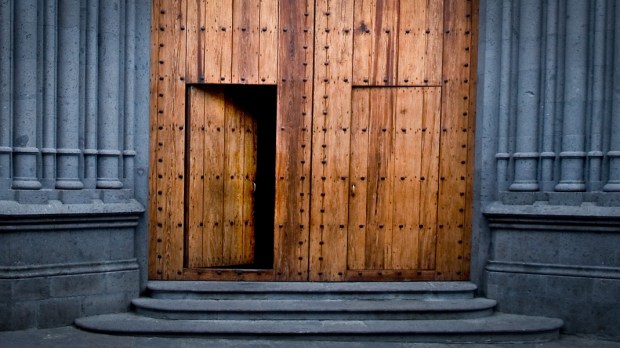While many are initiated into the Catholic faith when they are infants, thousands of individuals each year knock on the doors of the Church as adults. It can be a time of great joy for a soul searching for the truth, but the process of conversion isn’t always clear.
Here are some helpful tips for those curious about the Catholic faith, but do not know where to begin.
Visit a nearby parish
One of the first steps for a soul interested in becoming Catholic is to simply attend a Sunday Mass at a local parish. This may be a parish where you already know people, or it could be the only Catholic church in town.
Whatever the case is, your journey into the Catholic faith will begin at a particular parish. You will be initiated into the life of this parish and welcomed into the local pastor’s fold. You are welcome to attend Mass, but as a non-Catholic you cannot receive Communion, because sharing in the Eucharist is reserved for those who have been fully initiated (received the sacraments of Baptism and, as an adult, Confirmation) and are in a state of grace.
If you don’t know where the nearest Catholic church is, check out masstimes.org to find the parish closest to you.
Call the parish office about RCIA classes
If, after attending Mass for a period of time, you still feel called to join the Catholic Church, call the parish office about RCIA classes. RCIA stands for Rite of Christian Initiation of Adults. It is a process that mimics what happened in the early Church when someone wanted to be baptized a Christian. The pastor or religious education director will help you determine whether you are unbaptized or have been baptized as a child as a Catholic or a member of another Christian denomination whose baptisms the Church recognizes.
Typically a parish starts RCIA classes in the Fall, though sometimes priests will personally tutor someone if they arrive during the middle of the year. Most RCIA programs last from August to May, while a few places require an additional year. The early Church had a process that could take between 2-3 years before an individual was baptized. The goal was not to convert people who had no idea what they were doing, but to carefully make sure that the person knew what they were entering into.
The goal of these RCIA classes is to answer any remaining questions you have and to give you the fullness of the faith. If for some reason you have a bad experience or don’t feel ready, you can simply discontinue the classes and take them up at another time. It is usually advised to not become Catholic if you feel rushed or inadequately prepared. If you feel any hesitation, you may need some extra time of preparation.
Whatever you do, don’t stop asking questions! You may annoy the priest or instructor, but it is vital that all of your questions be answered before making the big leap.
Pick a sponsor/godparent
Whether you need the sacrament of Baptism (full initiation) or are coming into the Church through the sacrament of Confirmation, you will need to find a practicing Catholic who can offer spiritual guidance. This person should be chosen not simply because of a relation (i.e. Grandma), but because of a strong conviction of faith. They should be someone whom you can rely on and ask questions as you progress on your journey.
If you simply don’t know anyone, ask the RCIA teacher or priest to assign you a sponsor/godparent. They will know people in the parish who would be a good fit and in this way, you can make new friends in the parish community.
Don’t stop learning!
After you go through all the RCIA classes and arrive at the Easter Vigil to be immersed into the Catholic faith, don’t stop learning more about the faith you now profess. Many converts to the Catholic faith fall through the cracks after being initiated and soon after cease to go to Mass on Sunday.
Becoming Catholic is not a “once and done” type of ceremony, but is a continual call to conversion. It is a life long journey and many who were baptized into the faith as infants continue to learn as adults. The goal is not to become “lukewarm” Catholics, but to be set on fire with God’s love.
So, if you are contemplating becoming Catholic, check out a local parish and allow God to move your heart and discover the truth that you are searching for.
Read more:
HELP! I’ve Just Become a Catholic — Now What?

